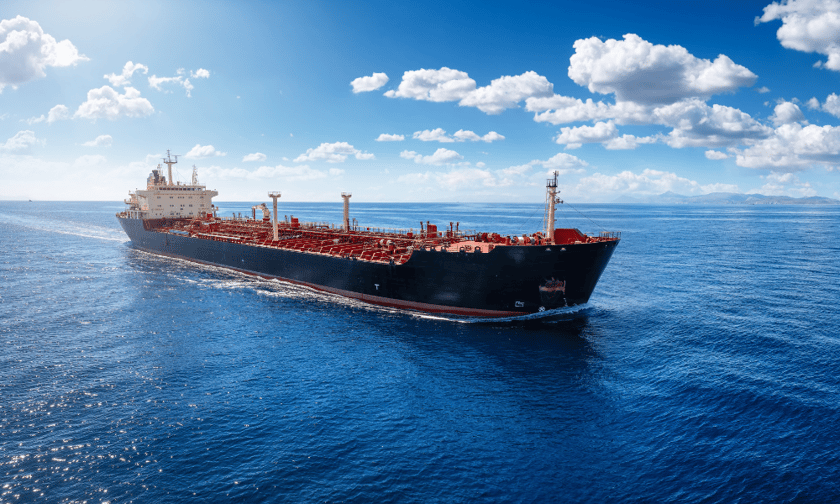

It was recently announced that the US oil tanker, M.V. Stena Immaculate, would have its contents removed following the tragic incident involving a container ship in the North Sea.
According to The Guardian, “more than 200,000 barrels of jet fuel” are involved in this removal operation.
A spokesperson stated that from March 29-30, operations began “to transfer the remaining 202,485 barrels of Jet-A1 cargo from the Stena Immaculate tanker to tanker Fure Vyl, which is anchored nearby.”
The spokesperson then added, “This lightering operation is a standard and routine maritime practice that follows established safety protocols.” Following these operations, “the jet fuel will then be delivered to its original destination of Killingholme, in Lincolnshire,” The Guardian reported.
According to Richard Hayman, technical director at Sedgwick, waste removal is a necessary activity, as without it, there is significant risk: “The fuel and fumes created within storage tanks are inherently flammable, posing high fire and explosion risks, particularly when onboard vessel systems are shut down, damaged, and/or dismantled. Additionally, tanks left idle are, without question, highly volatile, with residual fuel forming flammable vapour-air mixtures.”
According to Oceans UK, in 2024, “UK seas experienced significant pollution from oil and chemical spills. Data reveals that over the past 12 months, there were nearly 700 such incidents, averaging more than two spills daily. These spills released approximately 82,000kg of oil and 149,700kg of chemicals into the marine environment.”
Hayman emphasised the environmental importance of fuel removal: “Fuel removal prevents accidental leaks or spills, which can result in heavy fines under MARPOL (International Convention for the Prevention of Pollution from Ships) and, of course, regional pollution laws (in the UK – Merchant Shipping Act 1995 and the Marine Coastal Access Act 2009 – Water Framework Directive (WFD) regulations).”
Hayman added that it “minimises soil and water contamination if the vessel is scrapped or repurposed in less-regulated regions…”
Another reason for fuel removal is operational cleanliness.
According to Hayman, “The primary purpose of tank cleaning aboard oil, product, and chemical tankers is to remove the most recent cargo from the vessel’s containment systems (tanks, lines, and pumps) in readiness for the next cargo. Cleaning also prevents the accumulation of cargo residues and is necessary to prepare cargo tanks for gas-free entry.”
Hayman also explained that emptying the fuel tanks ensures the vessel is transferred free of contaminants, which “protects the buyer's interests and reduces post-sale disputes.”
The broker’s role in this process is to examine the risk.
Hayman implored: “As a primary condition, brokers should ensure due diligence is performed pre-sale through comprehensive surveys and inspections.”
Hayman also argued that brokers should highlight “environmental responsibilities in the memorandum of agreement (MOA) and sale contract, ensuring that MARPOL standards are maintained and complied with, recommending fuel removal and tank cleansing as a condition precedent to handover protects all parties involved.”
According to Hayman, during this process, brokers should “coordinate with classification societies and marine surveyors to confirm the process has been completed correctly and documented.”
He added that it is also up to brokers to “encourage the inclusion of a ‘fuel removal clause’ or specific environmental warranties.”
Ensuring lightering operations occur is vital from an insurance perspective: “Lightering of fuel left on board can significantly reduce insurance and liability exposures,” Hayman explained.
If a client wishes to be covered during fuel removal, lightering is essential: “Insurers may exclude policy coverage for pollution risks or limit coverage unless proper de-fuelling and tank cleaning are documented and relevant certification is issued,” he said.
When it comes to charters, brokers should “include clauses dealing with bunkers on redelivery, including whether fuel will be consumed, removed, or reimbursed,” Hayman said.
“In sales, fuel handling can affect the valuation, especially if the buyer assumes or rejects responsibility for residual fuel.”
Additionally, brokers must be aware of the serious legal repercussions of a client failing to properly handle fuel removal.
According to GOV.uk, The Environment Agency could impose “Variable Monetary Penalties (VMPs) up to £250,000 for environmental offences.” However, as of December 2023, there are now unlimited fines to better deter environmental violations.
Speaking on the need for effective fuel removal, Hayman implored: “It is more than a technicality – it is imperative. It intersects safety, environmental law, liability, and financial exposure.”
